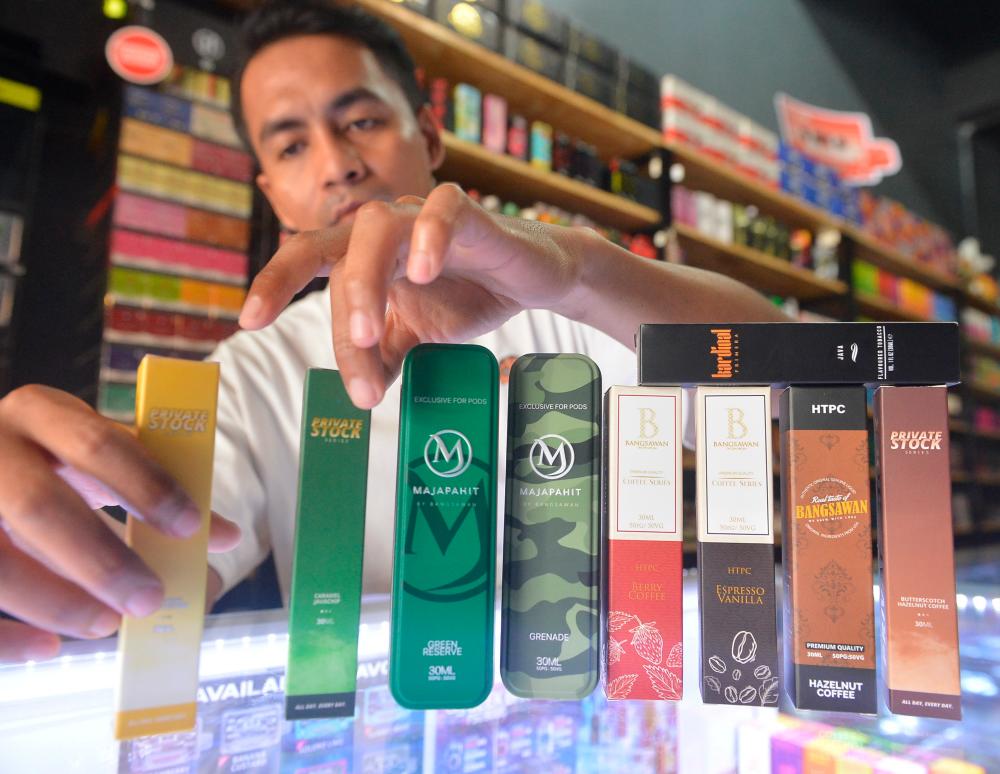PETALING JAYA: Laws should be passed against vapes, especially those with flavours that contain caffeine, said Universiti Kebangsaan Malaysia public health medicine specialist Prof Dr Sharifa Ezat Wan Puteh.
She said the legislative measures should limit the variety of vape flavours as in Denmark, Estonia and Slovenia, where only tobacco and menthol flavours are allowed, and Australia, which only permits the sale of vapes under prescription, with flavours restricted to tobacco, mint and menthol.
Sharifa Ezat said more than 30 countries have prohibited the sale of vapes as consumer products, which also means that the sale of flavoured vapes is not allowed.
She said flavoured vapes can appeal to youth, potentially increasing their adoption of the habit due to the enjoyable and customisable experience, which facilitates a transition away from traditional cigarettes.
“Nonetheless, the potential for addiction and the associated health risks still make this an important area for further research and regulation.”
Sharifa Ezat said the laws should also enforce labelling of nicotine strength and ingredients and have stringent quality control to prevent highly harmful additives and mixing of substances such as Delta-9-tetrahydrocannabinol, cannabidiol or synthetic drugs.
She also called for strict regulations and awareness campaigns on the use of vapes to deliver substances like multivitamins, given that the risk outweighs the benefits, especially since the long-term health effects are unknown.
While the US Food and Drug Administration classifies caffeine as a drug and a food additive commonly used in drinks with a recommended maximum daily intake of 400mg, coffee-flavoured vapes containing caffeine are increasingly popular among male and female students in Malaysia, exposing them to high risk of health issues.
“Caffeine is the most commonly consumed drug worldwide as it is used in prescriptions and over-the-counter medicines as it boosts energy, combats tiredness and enhances the effects of some pain relievers.
“Inhaled when vaping, it can produce a similar effect as other stimulants, but with greater risks due to the potential of containing other harmful additives such as volatile organic compounds (VOCs), which can lead to heart distress, palpitations, and insomnia.
“Some sellers add Vitamin E acetate to make the vapour thicker, but VOCs are harmful and can be emitted from flavoured vape liquids, and especially coffee flavours,” she said.
Sharifa Ezat said although vaping is not intended as a general consumer product, it is used in some countries as a tool to help tobacco smokers switch to a less harmful alternative in terms of toxicology.
She said caffeine is more dangerous in vaping as it can become a septic focus (the tendency to look at a problem in isolation from its context), cause serious health complications and localised infections that can spread.
“Inhaling caffeine through vape introduces it directly into the lungs, where it can potentially cause irritation, inflammation, and other respiratory issues.
“High doses of caffeine are a concern because it is a powerful stimulant that increases the heart rate and blood pressure. This could theoretically lead to severe cardiovascular problems, such as heart arrest.”
Sharifa Ezat said although it is nearly impossible to reach such high doses from typical vaping, the risk remains a concern.









